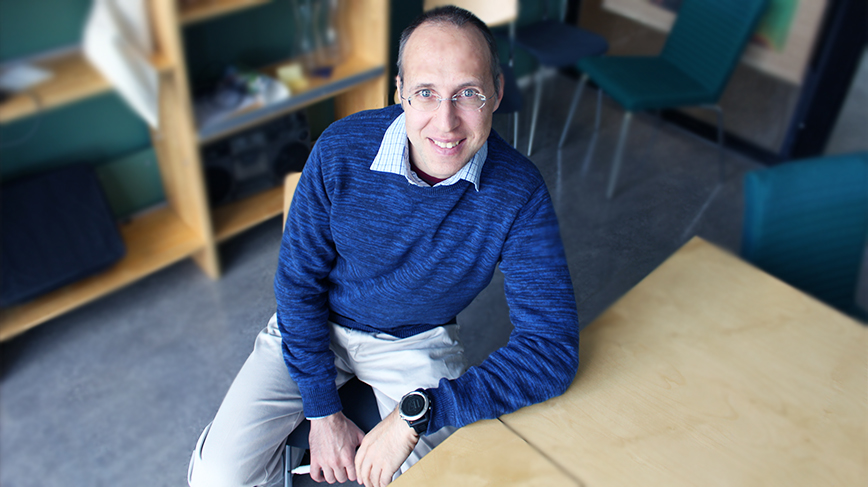Theoretical physics research – possible revolution for green technology

Egor Babaev, Professor in Condensed matter theory, how can your research benefit the society?
– My research is currently about superconductivity and the development of quantum computers. I develop new types of materials to be able to conduct electricity without energy loss and thus drastically cut down on the waste of the earth's resources. This is a step towards a green technology revolution.
Do you think there might be any misunderstanding for the general public regarding the subject of theoretical physics such as researchers are sitting by themselves working with very abstract things?
– I actually believe that people in general are curious about theoretical physics, but the problem is that not everyone gets access to popular description of research and misunderstandings then might arise. In fact, my research involves exciting collaborations with universities and industry, as in my case with Microsoft, where research can make a difference and greatly contribute to society.
We researchers generally need to improve ourselves when it comes to communicating and explaining the research to people outside the academic environment as well as working on applications of theoretical findings.
What is the biggest challenge concerning your work?
– I believe that the central and necessary element of a physicist in condensed matter theory is creativity. Namely it is required to be creative to understand properties of very complex materials and how these materials can be utilized in a useful for society way.
How come you became interested in physics?
– Thanks to easy "do it yourself at home" experiments I became interested in an early age. One day later in my teens, I watched a very clear Nobel Prize winner lecture on television. Since then I got hooked to the theoretical physics field.
You have been elected as a fellow in APS in the US (the American Physics Society*) with the motivation “For pioneering contributions to the theory of multicomponent superconductors and superfluids.”
– It is a great honor, I am looking forward to try to contribute more.
*The American Physical Society (APS) is a nonprofit membership organization working to advance and diffuse the knowledge of physics through its outstanding research journals, international scientific meetings, and education.
Text: Sofia Nyström
